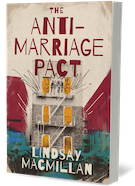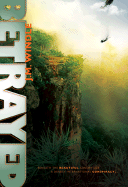Thursday, March 27. Albany (N.Y.) Airport, 6 a.m.
I'm heading to Atlanta--with a connection through Philadelphia--for the Spring Book Show. The Southern Independent Booksellers Alliance will host educational seminars tomorrow, and they've invited me to join them for one of the sessions. Here's what the event listing says:
2:45–4 p.m.Deeper Understanding Conversation with Robert Gray at Spring Book Show!
What Do Baby Boomers Want (to Read)?
Call it a conversation starter for 2008.
1. What are your thoughts about long-term marketing to Baby Boomers?
2. By the year 2018, will boomers still be shopping in bricks-and-mortar bookstores or primarily online?
So, why this boomer redux?
As the new year began, I explored the boomer issue in detail (Shelf Awareness, January 10, 18, 25 and 31). The idea for the columns, and now this conversation, about boomers as future bookstore customers was generated by the same simple, yet dangerously complex, thought. I wondered if we as booksellers were overlooking the fact that boomers will become very different, much more tech-savvy 60, 70, and 80 year olds than their predecessors were.
They (we) will still be reading for pleasure, but their comfort level with the online world and tech adaptation is likely to evolve dramatically. Will traditional books and booksellers be able to "hold their ground" with this generation, which has made a habit of rewriting the rules at every stage of its collective lifespan?
Reader response showed it was worth writing about. Tomorrow I suspect it will be worth talking about, too. I love a conversation that doesn't end.
This morning, I have plenty of time to observe boomer reading habits because the security lines in Albany are extraordinarily long, due perhaps to yesterday's cancellation of all those American Airlines flights.
As the line slowly moves forward, a CNN broadcaster on an overhead TV greets us with news that Delta will be today's problem air child, canceling many flights at Atlanta's Hartsfield-Jackson International Airport to re-inspect some of their older jets.
Since I'm flying USAir, I hold my breath and settle in to boomer watching just to draw my attention away from the "departures" board.
They're everywhere, of course. Boomer business people make calls, send text messages and e-mail to cancel or confirm meetings; vacationing boomer couples, already dressed for warmer climes, are on their cells, as are the boomer parents and/or grandparents who herd flocks of children through the crowds.
Few people are reading; fewer, it seems, every time I fly.
The guy about to board ahead of me is a two-fisted, middle-aged techie boomer who is consulting his Palm handheld (Palm reading?) while punching in a number on his cell phone.
Philadelphia International Airport, 9 a.m.
There's a promotional sign at the entrance to the CNBC News shop: "Read Return. Buy it, read it, return it, to receive a 50% refund. "
I do not, as advised, ask the sales associate for additional information.
In Airport World--that other dimension we inhabit after we pass through security and until we emerge at baggage claim--technology seems to have replaced print as the time-passing recreation of choice. It's not that you don't see people reading books in terminals or on planes, but the numbers are dwindling.
Terminal reading.
The majority of book readers I see on this trip are in the boomer age range. While most carry "airport reads"--mass market paperback mysteries or romance novels--today I notice that the prevailing title is a trade paperback: Elizabeth Gilbert's Eat, Pray, Love.
Buy, read, return.
Hilton Atlanta, 3 p.m.
Because of the tornado that swept through downtown Atlanta recently, the Spring Book Show had to be moved to this hotel from the damaged Georgia World Congress Center, which has just reopened to host the International Window Coverings Expo.
I'm here, preparing for tomorrow afternoon, when I'll have a BBBB conversation--Booksellers on the Business of Baby Boomers.
Where will we start? In Generation Ageless, authors J. Walker Smith and Ann Clurman contend that boomers believe in three things:
- Youthfulness: A belief in an ageless engagement with life that is active, spirited and exuberant.
- Impact: A desire to have an enduring influence in making a difference.
- Possibility: A sense of personal development built upon empowerment and continuous progression.
How can booksellers capitalize on those ideas? Tomorrow we'll talk about it here in Atlanta, and next week I'll tell you how, and where, the conversation went.
One thing is certain, however. Baby boomers won't go away quietly, even if they've now traded acid flashbacks for acid reflux.--Robert Gray (column archives available at Fresh Eyes Now)






SHELFAWARENESS.0213.S4.DIFFICULTTOPICSWEBINAR.gif)







SHELFAWARENESS.0213.T3.DIFFICULTTOPICSWEBINAR.gif)
 Joseph Wambaugh, a former Los Angeles Police Department detective sergeant, is the bestselling author of 17 works of fiction and nonfiction, including The Choirboys and The Onion Field. In 2004, he was named Grand Master by the Mystery Writers of America. His new novel, Hollywood Crows, was published earlier this month by Little, Brown.
Joseph Wambaugh, a former Los Angeles Police Department detective sergeant, is the bestselling author of 17 works of fiction and nonfiction, including The Choirboys and The Onion Field. In 2004, he was named Grand Master by the Mystery Writers of America. His new novel, Hollywood Crows, was published earlier this month by Little, Brown. Betrayed opens in the Guatemalan cloud forest, a remote, deep green paradise of white mist, the red flash of quetzal birds, coiling orchids and terror. After playing all day, three young children--two girls and a boy--head back to their village, hungrily drawn by the scent of cook fires. But when they step into the clearing, the smoke is wrong, as are the strange men stacking people like sacks of potatoes and the homes blazing like torches. The children are spared and taken away.
Betrayed opens in the Guatemalan cloud forest, a remote, deep green paradise of white mist, the red flash of quetzal birds, coiling orchids and terror. After playing all day, three young children--two girls and a boy--head back to their village, hungrily drawn by the scent of cook fires. But when they step into the clearing, the smoke is wrong, as are the strange men stacking people like sacks of potatoes and the homes blazing like torches. The children are spared and taken away.